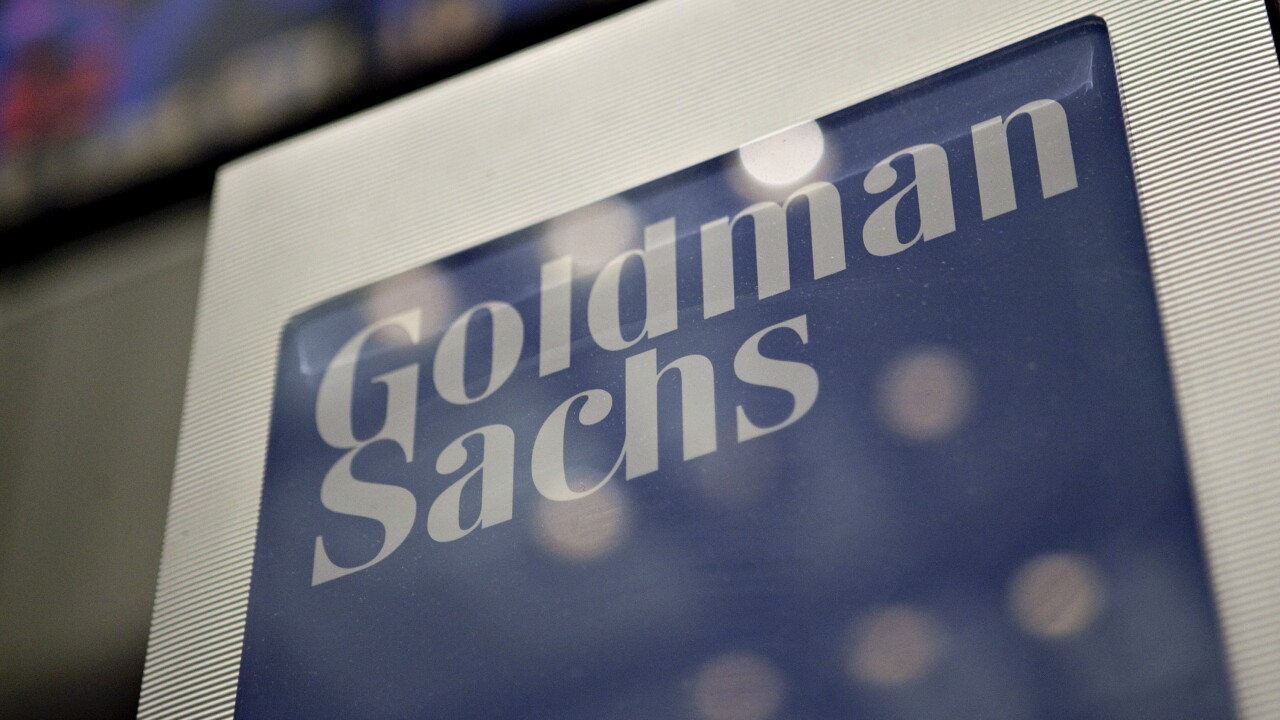The nascent active exchange-traded fund space, currently populated by PIMCO, AdvisorShares and Guggenheim Partners, may soon get a new entrant.
Boston-based Putnam Investments is exploring the active ETF space as a new revenue stream, according to chief executive Bob Reynolds.
Reynolds, who shared his firm's plans with an audience of fund managers and advisors at the Tiburon CEO Summit XXII in NYC Tuesday, said: "I do think there will always be room for active management and the more people who index, the more inefficient the market becomes. ETFs are great trading vehicles, but some of them underperform their benchmarks by 1000 basis points."
"Skill always gets paid," he said, referring to managers who actively seek securities that get above average returns versus their counterparts who passively follow the components in indices.
Capturing Absolute Return
Reynolds, the former chief operating officer at Fidelity Investments, said that he has been involved in 401(k) industry for a long time now and truly believes that it is the right system for this country.
"The Pension Protection Act of 2006 made it a much, much better system and the evidence is out there. At Putnam, we're kind of new to the game but we want to be a player long-term. The neat thing about it versus 15 years ago is you don't have to be in the recordkeeping business. It's an investment-only business as well today," he said.
However, being a recordkeeper for 401(k) plans gives the plan provider, i.e. Putnam, a leg up on capturing individual retirement account rollovers, a business that Reynolds thinks will be the "greatest opportunity in asset management" for the next 15 to 20 years.
"Information, if you use it the right way, is a tremendous weapon," he said.
"The game has just begun in IRA rollovers. It is the biggest opportunity in the asset management field today. They're much larger than 401(k)s, but you don't hear a lot of talk about it."
According to data from the Investment Company Institute, assets in IRAs totaled $4.9 trillion at the end of 2011, an increase of 4.6% from the end of the third quarter, and assets in 401(k) plans rose 4.8% in the fourth quarter to $4.5 trillion.
On the 401(k) front, Reynolds thinks that plan sponsors should really encourage their participants to defer 10% of their income to 401(k) plans, and not the standard 3%, which he labeled as "noise" that won't help participant's retirement readiness.
"If someone participates at 10% at the appropriate asset allocation, at retirement they'll have 125% final income replacement every year going forward. So that's where we have to get to," he said.
Reynolds is also a big supporter of the universal IRA, a policy that makes it mandatory for companies that currently don't offer their participants a retirement plan to direct deposit funds into an IRA account.
"If you look at median to lower income people, 60% to 70% of them that have workplace savings participate in a retirement plan. Workplace savings does work but the trick is how do we cover the other half?,'' he said. ''To use the word 'mandate' in Washington now is a bad word, but tough. The country needs it and we have a public deficit, which is a crime really, and to punish personal savings on the back of public deficit is crazy."
As well, Reynolds, who is a big proponent of absolute return strategies, said: "If you look over the next five to 10 years, it's going to be a huge asset class. I do think there is an opportunity for management firms to provide hedge fund-like products in a '40 Act structure."
Commissioner Reynolds?
In the summer of 2006 while still employed at Fidelity, Reynolds said he was looked at as one of the candidates to become commissioner of the National Football League.
He said he was interested in the position, which would eventually be taken by current commissioner Roger Goodell, because he loved the sport, officiated in college football for 14 years, and knew several of the owners.
"During my lifetime that I remember, there were only two commissioners in the NFL. It was something that I would rather look at and make a decision on rather than 10 years down the road say, 'I wish I looked at that.'" He doesn't begrudge the NFL for choosing Goodell, whom he said "has done a great job."
So after losing out to Goodell, Reynolds said he decided to try his hand at running Putnam because he felt he could fix some of the issues and challenges that the firm was going through at the time.
"To me, it came down to they just didn't deliver. If you're an investment firm, you have to perform. So I got there, looked at product lineup, people and compensation and really revamped all of it. There were some really good areas such as the asset allocation group and fixed income. But equities?'' he said. "No buyers. So I really blew that up and started from scratch, got back to fundamental asset management."
Reynolds, with the support of the Desmarais family, which owned Putnam's parent company, Montreal-based Power Corp., went on a hiring spree and pulled together a team of 30-plus equity analysts and fund managers with 10-15 year track records.
Reynolds also revamped the firm's compensation system rewarding managers who outperformed 90% of their peer group with a 150% bonus, full bonus for those who were in the top 25% of their peer group and bagels for those who lagged behind 75% of their peers.
To date, Reynolds said human capital is critical to any business, especially investment management.
"You spend time on money management but you also need great wholesalers to tell a story and to have relationships. People are the name to this game. You can't have one person that's head of innovation; that's stupid,'' he said. "You have to have a company where everyone is always looking for great ideas."





